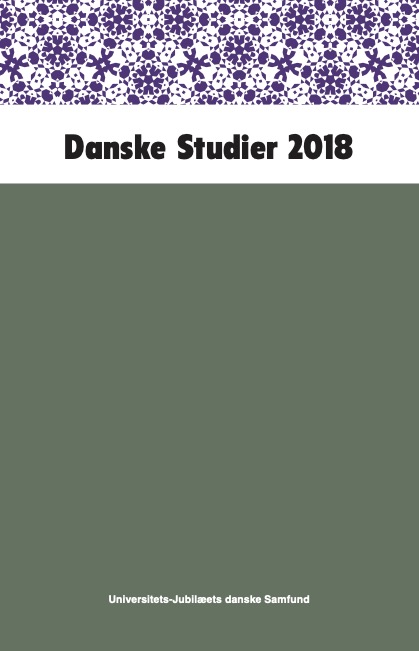Fatal forførelse
Retorisk-etisk narratologi og Olivia Levisons »Loreley«
Keywords:
Olivia Levison, Loreley, James Phelan, rhetorical, reading, strategy, Retorisk-etisk, narratologiAbstract
This essay studies the ethical dimensions of James Phelan’s rhetorical reading strategy. Briefly demarcating Phelan’s differences from two other positions within literary ethics, Martha Nussbaum’s and Judith Butler’s, it proceeds to a critical discussion of his typology of four audiences (flesh-and-blood readers, narrative audience, authorial audience, narratee), four ethical positions (character, narrator, implied author, rhetorical flesh-and-blood reader) and four thematic issues (the told, the telling, writing/producing, reception), paying particular attention to the concept of judgment and its status and function in ethical readings. Referring to Per Krogh Hansen’s characterology, the essay presents a Phelan-inspired ethical reading of Olivia Levison’s »Loreley« (1877), a story of a triangle between the narrator, his friend Bergarén and miss Harder, the eponymous protagonist. Focusing on the judgments of the three main characters, it argues that the narrator is unreliable and that the text suggests another understanding of miss Harder than the two male protagonists’ conviction that she is a dangerously seductive femme fatale. The essay also comments on the inadequate reception history of Levison’s story and its relevance for current discussions on the rules of interaction between the sexes.
References
Angivet som fodnoter i artiklen.
Downloads
Published
How to Cite
Issue
Section
License

This work is licensed under a Creative Commons Attribution-NonCommercial-ShareAlike 4.0 International License.
Artikler offentliggjort fra 1/1 2021 er omfattet af CC BY-NC-ND-Licens.
Artikler publiceret i Danske Studier før 1/1 2021 er underlagt dansk ophavsret. Det betyder at man må citere, downloade og linke til dem via tidsskrift.dk. Genudgivelse af artiklerne kræver en aftale med redaktionen som også ejer ophavsretten.





